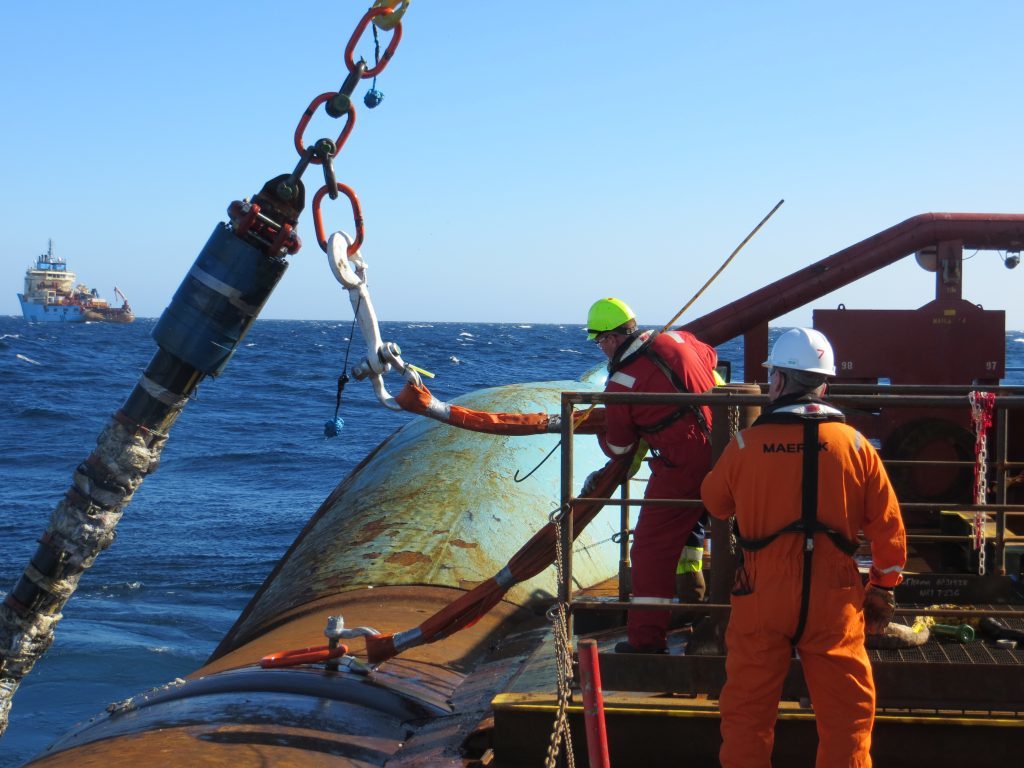
Decommissioning was in the spotlight again after a number of significant announcements last week.
Shell submitted its decommissioning plans for the Brent field, while First Minister Nicola Sturgeon launched a fund for infrastructure used to dismantle rigs.
In this op-ed, Aberdeen University lecturer Tom Baxter gives his take on some of the key decom themes being discussed.
1. The Oil Company pays
The following is a quote from Shell – ‘Shell and Esso will be paying the decommissioning costs. The tax relief we will get back is not a subsidy or a new cost to the taxpayer – it’s a refund – i.e. the tax has already been paid by Shell and Esso in previous years.’
That is spin – going forward, if decommissioning costs come in as per the £50 billion estimate, the treasury (the taxpayer) will be down by around £25billion. If the costs are higher the treasury will pay more – a huge risk to the taxpayer. The taxpayer does pay.
2. There is an environmental benefit from removal
There is no environmental benefit from removal. Indeed some of the decommissioning activities will do more environmental harm than good. If the architecture is left in place, it will naturally form a reef, providing a benefit to the environment.
The most pressing environmental issue of our time is global warming. If our aim is environmental benefit surely making the offshore infrastructure clean and safe and using the taxpayers’ money, earmarked for removal, to fund green energy projects would be a much more sensible option.
3. Removal will provide an onshore ‘jobs bonanza’
Headlines like this have been used numerous times by the media. Onshore activities are around 3-5% of the overall decommissioning costs. The jobs are transient; once the task is complete there is no follow on activity. There will not be a jobs bonanza.
However, the green energy option will provide many more sustainable jobs in design, fabrication and construction. The green energy stations will also provide continuous operations and maintenance jobs during their 30 – 40 year life.
4. Decommissioning is good for the economy
How can a decommissioning industry that produces nothing and uses billions of taxpayers’ money be good for the economy? The investment has no legacy – we take something to bits, we have not built a factory or provided new infrastructure to serve society and the economy. Also, much of the removal money will go to the heavy lift companies – the UK has none.
On the other hand, green energy will be UK based and unlike decommissioning it will pay taxes providing for health, education, tackling poverty etc. Furthermore, unlike decommissioning, green energy will be providing society and the economy with an essential commodity – power for industry, electric transport and heat for homes. What does returning a fraction of a percent of the North Sea seabed acreage provide?
5. There will be technology spin off
What is this – some cutting and explosive technology, some novel use of a gas axe? Hardly a huge revenue generator.
6. We must follow the OSPAR directives
As well intentioned as OSPAR is, the directives are taking the nation to a very poor outcome. So why are we not challenging them? We know so much more now than when the directives were agreed in 1998 – the consequences of global warming for instance. Even OSPAR should be able to see green energy as having a much better outcome for the international community.
7. The OGA is maximizing economic recovery
How can the current plans for decommissioning be maximizing economic recovery? An objective of reducing removal costs by 30% is a good aim. But why remove in the first place when we can do so much more to maximize the economic benefit to the UK by using the money in green energy?
Sadly the OGA have told me that their role is to ensure OSPAR is followed and not to challenge it. Surely if we are witnessing a very poor use of taxpayers’ money the OGA should be lobbying Westminster. That’s not their job I’m told.
8. The Scottish Government is maximizing economic recovery
See above. I’ve discussed the green energy alternative with a number MSPs and the Scottish Government. I’m told that’s a Westminster and OGA matter. Because it is not your responsibility does that mean you do not challenge something that you see is clearly wrong?
By the way Mrs Sturgeon, that £5million Decommissioning Fund is an audience playing, paltry gesture.
OGA and The Scottish Government – there is an elephant in the room.
Tom Baxter is senior lecturer in chemical engineering at Aberdeen University.
Recommended for you
